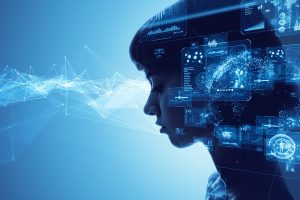 The impact of artificial intelligence (AI) on the future of the job market is a cause for debate. Some experts believe AI will result in the displacement of human employees, while others are strongly convinced that AI will bring new possibilities and enhance the productivity of electronic engineers. Whatever the outcome, AI will have a significant impact on the employment market and the skills required to succeed in the workforce.
The impact of artificial intelligence (AI) on the future of the job market is a cause for debate. Some experts believe AI will result in the displacement of human employees, while others are strongly convinced that AI will bring new possibilities and enhance the productivity of electronic engineers. Whatever the outcome, AI will have a significant impact on the employment market and the skills required to succeed in the workforce.
According to Oleksandra Haponovych, at the job search website Jooble, there are both key challenges and innovations that AI brings to engineering.
Opportunities
AI is influencing employment in complex and varied ways with both the level of AI adoption in the technology industry and government policies and legislation.
Among the opportunities created by AI is routine task automation. AI and automation technologies can replace or complement human labour in repetitive, rule-based and routine jobs. This may result in the loss of jobs in industries such as manufacturing, engineering and data entry. However, AI can significantly increase the performance of individual employees who master using AI functions or skills.
AI is also becoming more significant in automating many engineering tasks. By evaluating data from sensors and other sources, AI algorithms may uncover faults and problems in engineering systems and recommend solutions. This decreases the need for employees to be involved in maintenance and operation. Engineers can devote their time to activities that add value, while AI tackles repetitive and tiresome tasks.
Simulation and analysis
AI also increases the speed and accuracy of engineering assessments and simulations. Machine learning algorithms can analyse simulation data and detect patterns or trends that humans may overlook. As a result, engineers can make more informed judgements and optimise designs with greater efficiency. Simulations powered by AI can provide useful insights into system behaviour, supporting engineers in building resilient and efficient solutions.
AI’s role in predictive maintenance and fault detection means it is possible to forecast when equipment is likely to fail and offer maintenance activities to avoid costly breakdowns through the analysis of sensor and past performance data. This proactive maintenance method lowers downtime, extends equipment life and enhances overall operating efficiency.
The manufacturing, engineering and development sectors are being transformed by AI-powered robotics and automation. Robots with AI skills can accomplish complex jobs with accuracy and efficiency. They are capable of handling complex assembly processes, optimising manufacturing flow and increasing overall productivity.
The integration of AI and robots is changing the way engineers approach manufacturing and paving the way for the creation of more advanced and flexible production systems. AI is increasing the demand for certain skill sets, such as data science and programming (see text box).
Enhanced collaboration
AI technologies enhance engineering team collaboration and communication and their ability to share and access information among geographically distributed teams. Natural language processing capabilities facilitate extracting useful information from massive amounts of data, allowing engineers to make informed decisions rapidly.
AI-powered learning platforms ensure equitable access to career development; from an electronics engineer internship to mid- or even senior-level specialist roles.
Key challenges
Although AI brings significant innovations to the job market, there are also many challenges.
 AI is causing job losses in some industries, leading to significant anxiety in some areas. The careers most exposed to automation are office positions, particularly those that do not require a creative approach or high levels of education.
AI is causing job losses in some industries, leading to significant anxiety in some areas. The careers most exposed to automation are office positions, particularly those that do not require a creative approach or high levels of education.
Another worry is privacy. The lack of regulation around AI could lead to privacy violations and discrimination. It is important to have comprehensive privacy legislation that protects individuals against any significant effects of using personal information in AI.
Data quality and availability could also be an issue. For AI to make accurate predictions, large amounts of high-quality data are required. Additionally, AI is a complex field that requires specialised skills and expertise, which can be difficult to find and hire.
The impact of AI on the job market causes a shift in the skills required for certain positions. In order for professionals to benefit from modern technology and remain competitive in the job market, it is important to adapt and develop a diversified set of skills.
The job specs for AI
The UK job site Indeed reported searches for generative AI have increased by almost 4,000%, with openings for generative AI jobs up by 306% over the past year.
Statistics from AIPRM, the creator of the eponymous Chrome extension designed to encourage the use of ChatGPT, found that computer science was the most commonly mentioned term in job postings and the most mentioned AI-related skill. It was in around 3.3% of all AI job listings in 2023, with engineering second.
Which job titles are in the AI sector? The highest frequency of job postings were machine learning engineer, followed by applied scientist and research scientist, with data science manager, head of data, AI architect and director of data science.
The lure of AI is international. One surprise in the figures is that the average growth in AI hiring for the period 2017-2022 was 1.2% in the US, with Canada growing the most at 1.26% in the same period and Great Britain at 1.22%. (The US has a more developed AI sector, so there may be market saturation.)
In the US, AIPRM figures showed California had the highest percentage of AI job listings at 27%.
The US online recruitment company ZipRecruiter published its 2024 Labor Market Outlook, looking at trends across 10 industries.
Julia Pollak, ZipRecruiter’s chief economist, believes that investments in AI and other technologies will begin to bear fruit. “Pent-up demand for labour and business inputs will be unleashed, and the 2020s will become a decade of rapid growth and innovation,” she predicts.
The report concluded that adopting AI to increase productivity and moving to greener technologies present opportunities for employers to improve, modernise and expand access to their jobs.
 Electronics Weekly Electronics Design & Components Tech News
Electronics Weekly Electronics Design & Components Tech News



